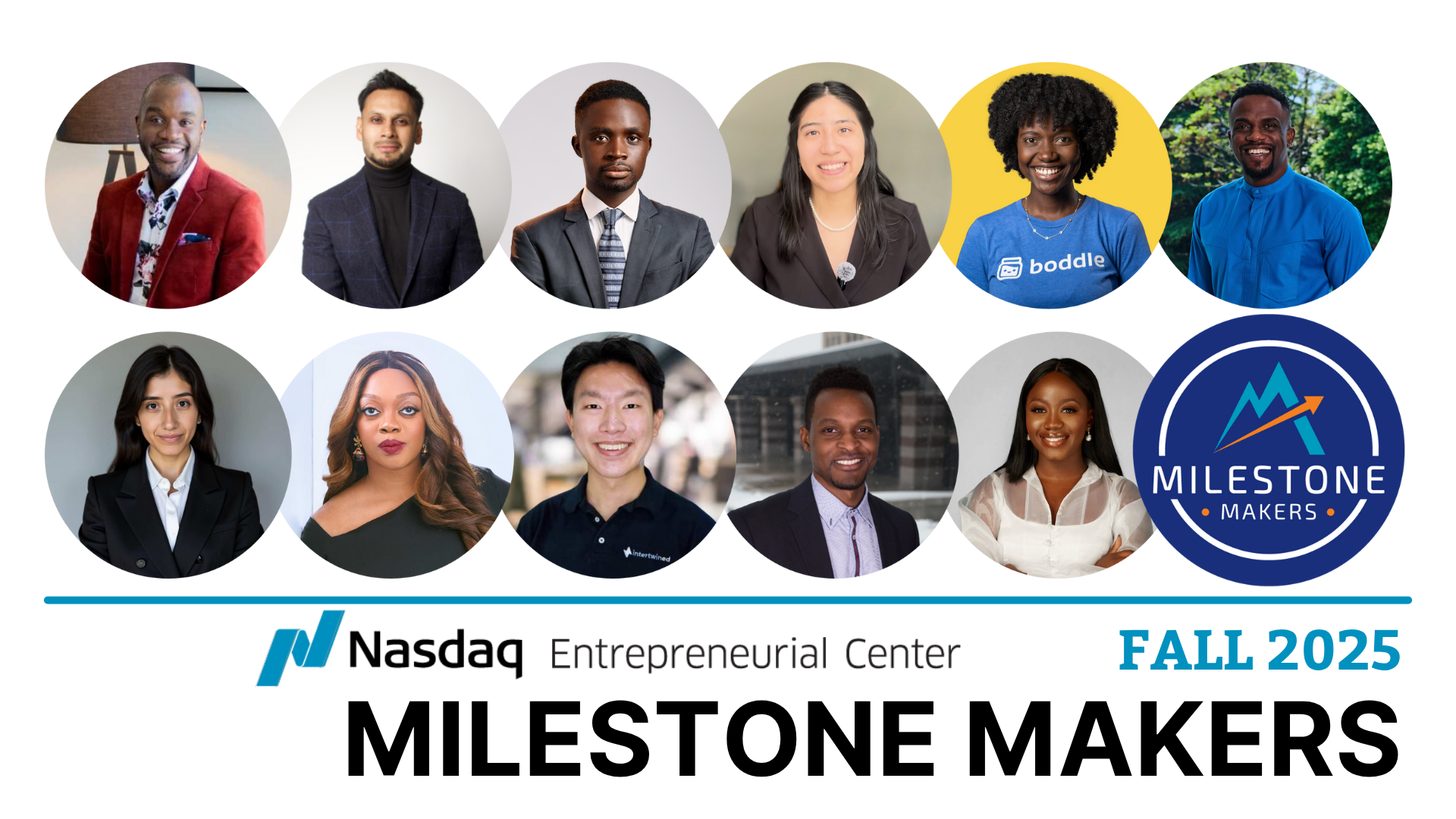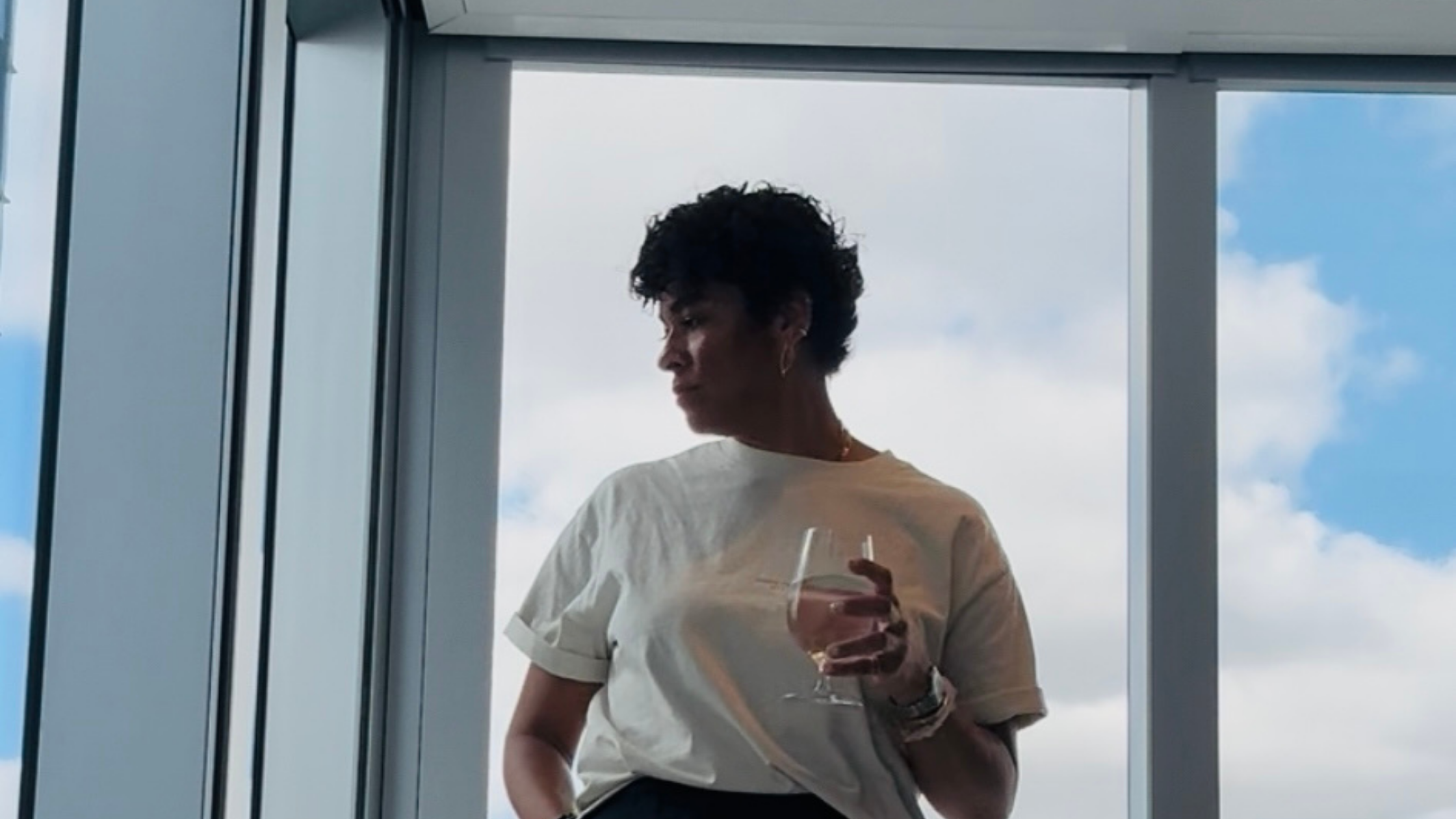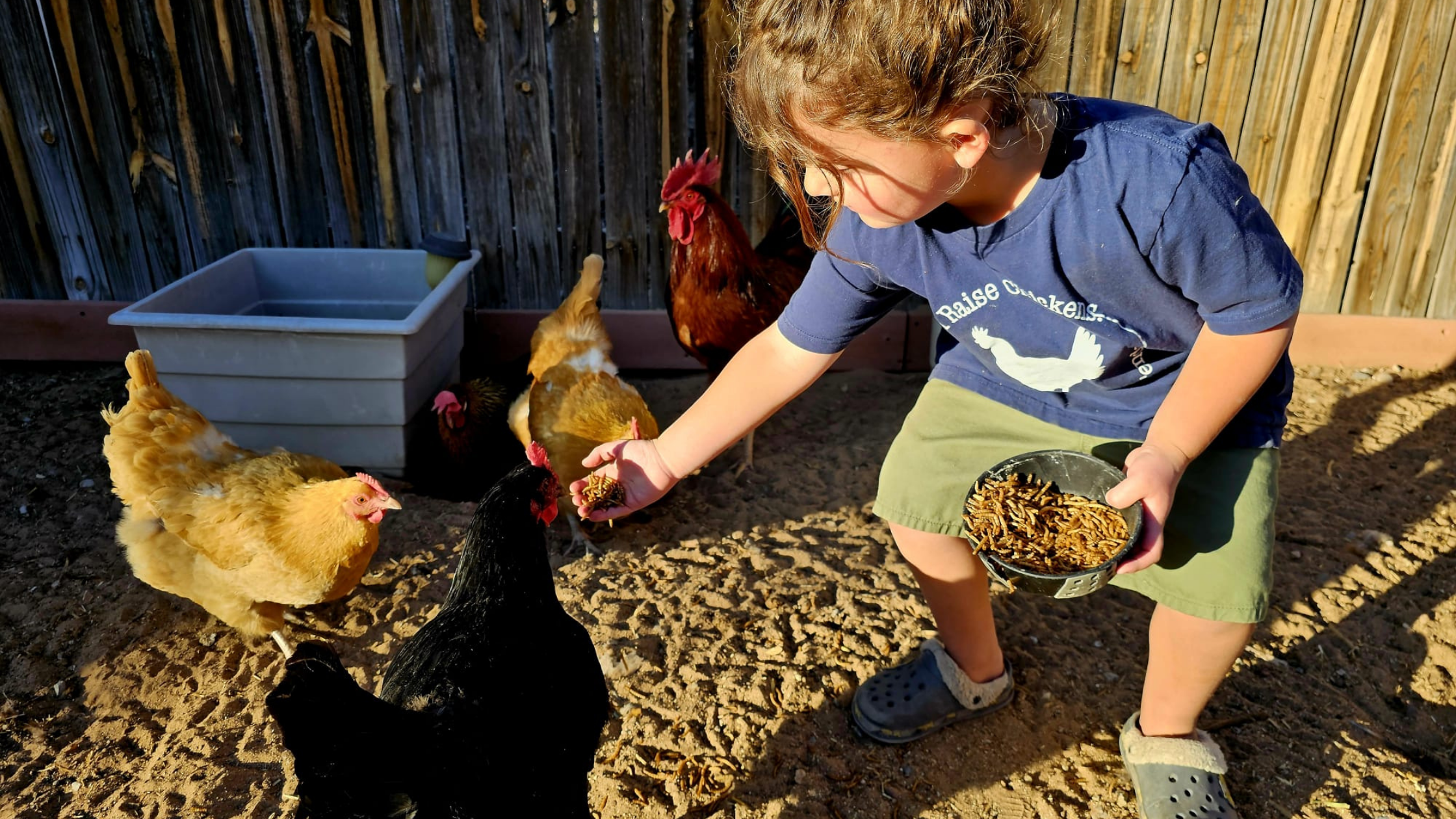Christine Renaud: CEO of Braindate and Pioneer of Peer-to-Peer Learning
Why Bootstrapping Shaped Braindate’s Growth
Christine Renaud, CEO and cofounder of Braindate, is redefining how people connect, learn, and grow. A Harvard educated entrepreneur and advocate for women in business, Christine has transformed traditional event networking into a powerful engine for peer-to-peer learning. Through Braindate’s innovative platform, she has helped spark over 500,000 meaningful conversations at leading global events including TED, SXSW, and Salesforce Dreamforce—earning Braindate recognition on Fast Company’s 2025 list of the World’s Most Innovative Companies.
Bootstrapped from day one, Christine has proven that visionary, human-centered innovation doesn’t require venture capital to scale. Named one of BizBash’s “Most Innovative People in the Events Industry,” she is known for her bold approach to entrepreneurship, her dedication to authenticity, and her mission to help people build deeper connections that drive both personal and professional growth.
 What does “entrepreneurship” mean to you? How has your understanding of it evolved over time?
What does “entrepreneurship” mean to you? How has your understanding of it evolved over time?
Christine Renaud: Entrepreneurship, to me, is the art of creating something that didn’t exist before because you believed it should. It’s not just about building businesses—it’s about daring to reshape the world with your vision and values. Over time, I’ve come to see entrepreneurship not as a solo act of hustle, but as a deeply collaborative, soul-expanding process rooted in service, creativity, and integrity.
Tell us about your first experience with entrepreneurship. What sparked your interest in building something of your own?
CR: My first brush with entrepreneurship came when I was just seven. After learning about the damage humans were causing to the environment, I rallied my classmates to create and sell pins with eco-conscious slogans. I didn’t know what an entrepreneur was—I had no role models in business—but I instinctively started creating projects that served my community.
At 11, I helped build a youth center in my hometown that still exists today. At 24, I launched a program to support teacher internships in Senegal. And at 25, while participating in the Ship for World Youth program led by the UN and the Government of Japan, I discovered the term social entrepreneurship—and it was like finding my people. I realized I wasn’t just someone who liked starting things. I was part of a global movement of builders with purpose.
What is the origin story of your company? What motivated you to start, and how did those early days shape your journey?
CR: Ever since I was a child, I’ve been drawn to the magic of human transformation—the moment someone pushes through a personal boundary and becomes a fuller version of themselves. I began my journey in the world of education, hoping to nurture that growth in the classroom. But I quickly became disillusioned by the rigidity of the system. I didn’t want to “teach the curriculum”—I wanted to create spaces where humans could truly bloom. A professor once asked me, “Why don’t you create your own school?” That question became the catalyst for everything that followed.
I spent years exploring the nature of meaningful learning—at Harvard, in post-conflict Northern Ireland, and through media work in NYC. I kept seeing a pattern: real learning happens when people are stuck, searching, and brave enough to reach out. Not through lectures, but through conversations. That’s when the idea struck—what if we built a platform where people could connect one-on-one to share knowledge? In 2011, we launched e-180 (now Braindate) to make that happen. Within days, thousands signed up. People began meeting in cafés to help each other learn, and it was working.
Everything shifted when C2 Montréal invited us to bring Braindates to their event. In three days, we facilitated more learning than in our previous 18 months combined. That moment revealed a powerful truth: events bring together the right ingredients for peer learning—shared purpose, curiosity, and commitment. Since then, we’ve brought Braindate to global stages like TED, SXSW, and Salesforce, proving that a single conversation can be a transformative act of learning. And we’re still growing—because the world needs more spaces where people can come together, share what they know, and help each other grow.
What do you wish you had known when you started? If you could go back, what would you do differently?
CR: I don’t believe in regrets—learning is the heart of the entrepreneurial journey. But if I could whisper something to my younger self, I’d say: you don’t need to wear the superwoman cape. You don’t have to do it all, all at once. There’s so much joy and power in focus, in deep work, in trusting others to rise.
I’d also remind myself that being a leader doesn’t mean choosing between being the creative soul or the guiding managerial light—you can be both. It took me a long time to step fully into my role as a “real manager,” and now that I have, I see how profoundly it strengthens the team, the vision, and the impact.
Has there been a pivotal moment or a game-changing decision that defined your growth as an entrepreneur?
CR: There have been two moments that completely changed how I show up as an entrepreneur: when my husband was diagnosed with brain cancer, and when I became a mother. Both shook me to my core and made me realize that, at the end of the day, what matters most isn’t the business milestones or the accolades — it’s the people you love and the memories you create together. It forced me to put life into perspective, to build in a way that honors what’s truly important, and to lead with a lot more heart, courage, and humanity.
What is the biggest milestone you hope to achieve in the next three months, and why is it important to you and your business? How are you planning to tackle it?
CR: In the next three months, our biggest milestone is achieving strong adoption of our newest product, Gathering, within our existing client base. Gathering is our answer to a fundamental need we’ve observed across the event industry: how to spark meaningful peer learning—not just during a single event, but as a sustained rhythm throughout the year.
This milestone matters deeply to us because it’s about future-proofing Braindate. As event budgets become more uncertain, especially in the B2B tech space, our clients are looking for high-impact, community-driven solutions that justify year-round engagement. Gathering delivers that, helping them nurture relationships, activate knowledge-sharing, and unlock the ROI of connection—outside of traditional event cycles.
To get there, we’re taking a high-touch, design-partnership approach: co-building pilots with our most innovative clients, measuring success through engagement and repeat usage, and iterating rapidly based on real-world feedback. We’re also embedding Gathering into existing communities that already crave connection to learn, grow, and scale from within.
What does “success” mean to you, both personally and professionally?
CR: Success means having the time and space to enjoy what truly matters—deep connection, meaningful work, and moments of creation and play. It’s about growing into the person I want to be, while building something that matters in the world.
Share your boldest dream for your business and the world. What’s your plan to make it a reality?
CR: In ten years, I want Braindate to be so embedded in how we learn from each other that when you sit next to someone on a plane and say, “Have you ever done a braindate?”—they say yes. We’ll get there by making peer learning as intuitive and accessible as coffee chats, and by weaving it into the everyday life of communities, companies, and events around the world.
What is your entrepreneurial superpower? How has it helped you overcome challenges or seize opportunities?
CR: My superpower is staying focused on what truly matters. I don’t get distracted by the noise or what competitors are doing—I stay grounded in our vision and move forward with purpose. That focus has helped us lead rather than chase.
Can you share one of your proudest moments and one of your darkest days as an entrepreneur?
CR: Being named to Fast Company’s List of the World’s Most Innovative Companies was a surreal moment of pride. But our most defining experience came at the start of the pandemic—we lost all our revenue for the year in one week. And then, in just three weeks, we launched our virtual product that saved the business. It was both our darkest and most brilliant moment, thanks to the team’s courage and creativity.
What lessons did those experiences teach you?
CR: There’s always a way.
What personal values drive you as an entrepreneur?
CR: Authenticity. I believe in building from a place of truth—about who we are, what we value, and what we’re here to do
How have those values influenced your company’s culture and mission? Can you share an example?
CR: Authenticity is at the core of Braindate—it’s how we design, how we lead, and how we show up. We don’t fake community or engineer connection—we create the conditions for real, honest conversations. For example, when we train our Braindate hosts, we go beyond logistics. We guide them to connect with their own purpose, so they can hold space for others from a place of genuine care. That ripple effect is what builds trust, conversation after conversation
What’s it like working alone or with a team? How do you approach building strong partnerships?
CR: I thrive in collaboration. Working with a team gives me energy, and building strong partnerships begins with deep listening. I seek people who share our values and want to co-create—not just transact. Whether it’s clients, collaborators, or team members, I look for alignment in vision, pace, and heart. At the same time, I protect time for deep work. My mornings are sacred—each one themed for focus—so I can lead with intention, not reaction.
What excites you most about the market or industry you operate in? How are you navigating its challenges and changes?
CR: I’m energized by the shift happening in the events industry: the growing awareness that connection isn’t a side benefit—it’s the point. With tighter budgets and changing expectations, we’re helping clients redefine ROI by putting human connection at the center. Braindate isn’t about passive content—it’s about activating the wisdom in the room. And when you do that, the ROI becomes real: transformation for attendees, retention for clients, and organic community growth.
Share a moment when your resilience as an entrepreneur was tested. How did you push through, and what did you learn?
CR: The pandemic tested me more than any other moment in my journey as an entrepreneur. Overnight, our entire business model—centered on in-person gatherings—was rendered obsolete. It was terrifying (for so many reasons).
We came together as a team, and we rebuilt our platform for virtual experiences in record time, doubled down on human connection when the world needed it most, and ended up expanding globally in the process.
What I learned is that resilience isn’t about pretending everything is okay. It’s about facing what’s hard, staying close to your purpose, and choosing to act anyway. That time showed me the power of collective courage—and that sometimes, the most profound growth happens in the most uncertain times.
Have you raised outside capital for your business? If so, what kind, and why did you choose that route?
CR: We’ve stayed bootstrapped. We chose this path intentionally—to stay in control of our vision, move at our own pace, and build a company rooted in purpose, not just hyper-growth.
That said, we’ve accepted a few strategic grants and non-dilutive funding opportunities along the way to support innovation and market expansion—always aligned with our mission.
If you’ve chosen not to raise capital, what influenced your decision?
CR: The desire to stay focused on our mission. Raising capital often comes with pressure to prioritize rapid growth over long-term impact. We wanted the freedom to build intentionally, stay close to our values, and serve our community without compromise.
What do you think needs to change in the entrepreneurial ecosystem to reduce barriers for others?
CR: We need to redefine what success looks like. Too often, the ecosystem only celebrates fast growth, big rounds, and flashy exits—which excludes founders building quietly, sustainably, or outside traditional networks.
We also need to fund and support more diverse entrepreneurs—especially women, BIPOC, and non-technical founders—with models that value purpose, creativity, and long-term impact, not just scalability.
Support shouldn’t be one-size-fits-all. The more paths we make visible and viable, the more inclusive entrepreneurship becomes.
How do you manage the demands of entrepreneurship while maintaining your well-being? What strategies work best for you?
CR: To be honest, maintaining well-being as an entrepreneur and a mother is extremely challenging. Women—especially mothers—are still carrying an invisible load that rarely gets acknowledged. While building a business, raising children, and trying to be present for it all, there are moments when balance feels like a myth.
What’s helped me most isn’t striving for perfect balance, but being radically honest about my limits, asking for support (I’m really bad at it), and building systems around me—at work and at home—that allow me to breathe.
I stopped drinking a year ago, which has been one of the most powerful acts of self-care I’ve done. It gave me back clarity, energy, and the capacity to sit with what’s real, even when it’s messy.
I don’t have it all figured out. But I’ve learned that well-being isn’t a destination—it’s a practice of coming back to yourself, again and again.
Where do you find inspiration to fuel your vision? Do you have any creative habits that help you stay innovative?
CR: Problems inspire me—especially the ones that seem overlooked or accepted as “just the way things are.” I’m driven by the desire to build something useful and meaningful that doesn’t exist yet, or to improve something that could be so much better.
Creatively, I stay innovative by giving myself space to think and experiment. I write regularly, I protect time for deep focus, and I surround myself with curious people who challenge my perspective. Innovation often comes from connecting the dots between different worlds.
What kind of entrepreneur do you aspire to be? How do you want to be remembered in your industry or community?
CR: I want to be known as the kind of entrepreneur who built with heart and challenged the status quo—not just for growth, but for meaning.
Someone who proved that you can be ambitious and kind. That you can center purpose and still win.
How does your work contribute to solving larger societal challenges or helping others?
CR: We’re tackling one of the quietest epidemics of our time: loneliness. Braindate was built to make it easier for people to find connection, share what they know, and feel a sense of belonging.
When people leave an event feeling seen, inspired, or less alone: that’s the real win.
What’s a problem that keeps you up at night, and how are you working to solve it?
CR: I often worry about how to grow the business without burning out myself or my team.
I’m working on it by redefining what “growth” means for us—one that includes sustainability, joy, and purpose—not just financial metrics.
Do you have a favorite quote or mantra that keeps you motivated on tough days?
CR: If you see something, do something.
If someone wrote a book about your entrepreneurial journey, what would the title be?
CR: “Witches in Business: Reclaiming our Powers to Transform a World that Needs Us.”
Do you have someone you’d like to nominate to be profiled in our Faces of Entrepreneurship series? Please let us know by emailing media@thecenter.nasdaq.org or submitting your nomination using this form.




